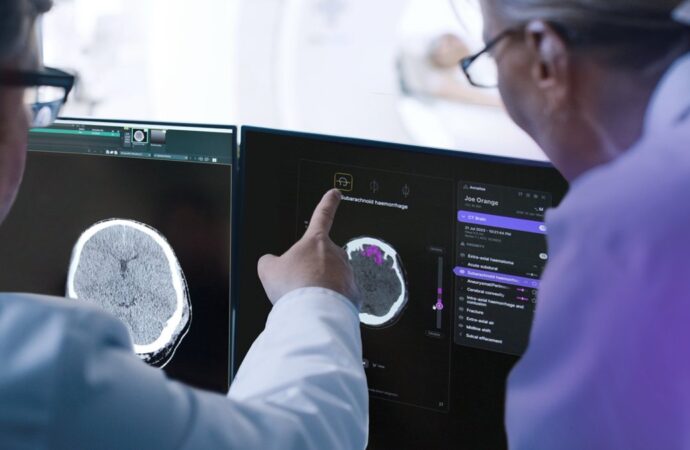The use of artificial intelligence (AI) technology to assist radiologists in interpreting complex brain scans has been found to significantly improve accuracy and speed. A study conducted in Australia found that radiologists were 32% more accurate and 11% faster in detecting brain hemorrhages when assisted by AI. The NHS is already implementing this technology in several hospitals, demonstrating its potential to enhance patient care and outcomes.
In the study published in the European Journal of Radiology, 30 radiologists were tasked with detecting “clinical findings” on 2,848 complicated CT brain scans. They were compared in terms of accuracy and speed when using AI assistance versus working without it. The deep-learning system created by Annalise, an Australian AI company, proved to be particularly beneficial in interpreting difficult brain scans.
The AI assistance was found to significantly improve the radiologists’ ability to detect subtle findings. Although some abnormalities were difficult for radiologists to detect on their own, the AI model was able to identify them, suggesting that the findings were visible to the human eye but often missed without AI assistance. The study’s findings have important implications for patients and clinicians, according to Annalise’s chief medical officer, Rick Abramson.
One specific condition where AI assistance can be life-saving is a subarachnoid hemorrhage, which involves bleeding in the space surrounding the brain. The quicker and more accurately this condition is identified, the faster emergency surgery can be performed. Non-contrast computed tomography (CT) scans of the brain can be challenging to interpret, as they lack the use of contrast, which allows for clearer visibility of the organ being examined. AI technology can provide valuable assistance in such cases.
Nick Woznitza, a consultant radiographer at University College London Hospitals, welcomed the study’s findings, stating that they add to the growing evidence that AI clinical support tools are accurate and improve radiologists’ performance in reviewing CT scans of the brain. Woznitza also emphasized the importance of further clinical evaluations to determine how best to utilize this promising technology and for which patients.
The study, conducted by researchers from several Australian universities and led by the University of Notre Dame Australia in Sydney, was based on radiologist readings in Australia. The deep learning model used in the study was trained using a large dataset of 212,484 scans from a private radiology group in Australia.
Overall, the use of AI technology as a “second pair of eyes” for radiologists has shown great potential in improving the accuracy and efficiency of interpreting complex brain scans. Its implementation in the NHS and ongoing research in this field are promising steps toward enhancing patient care and outcomes in radiology.









